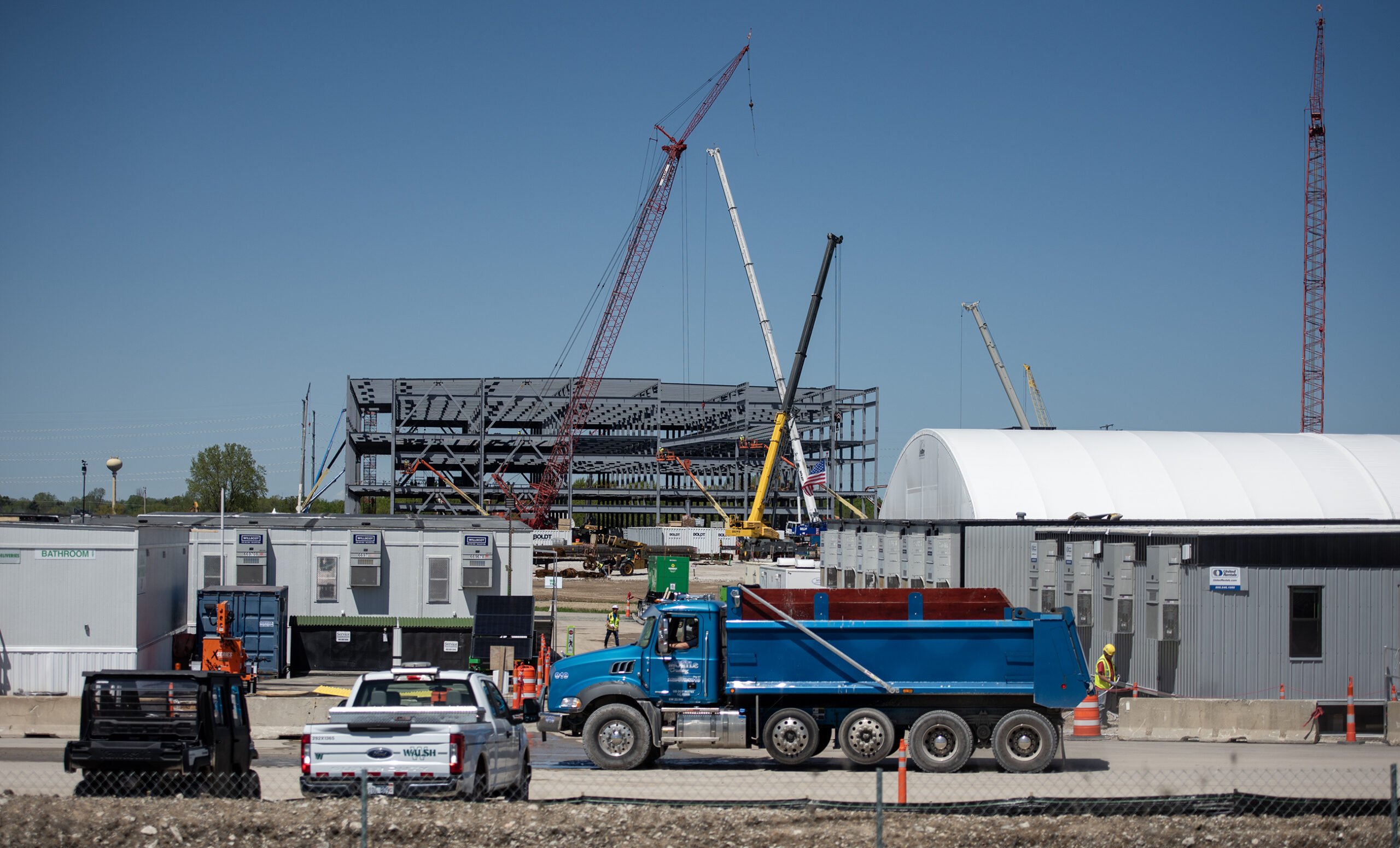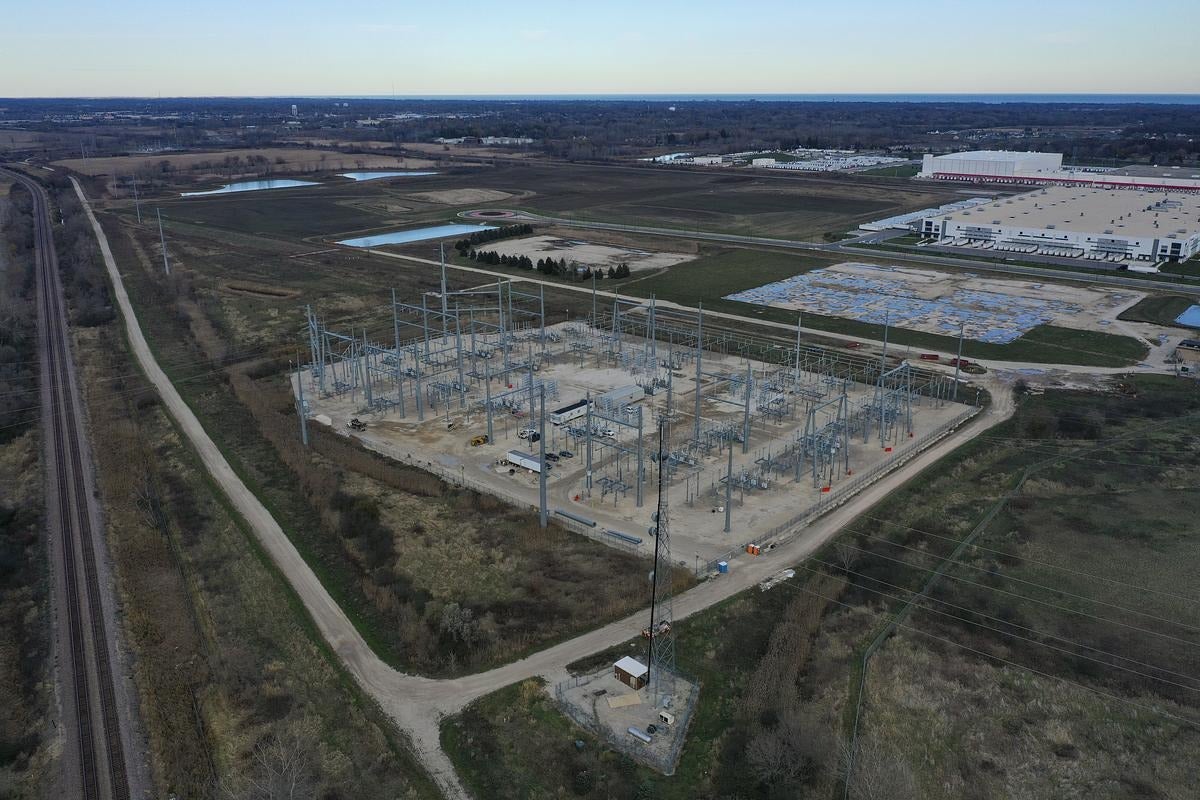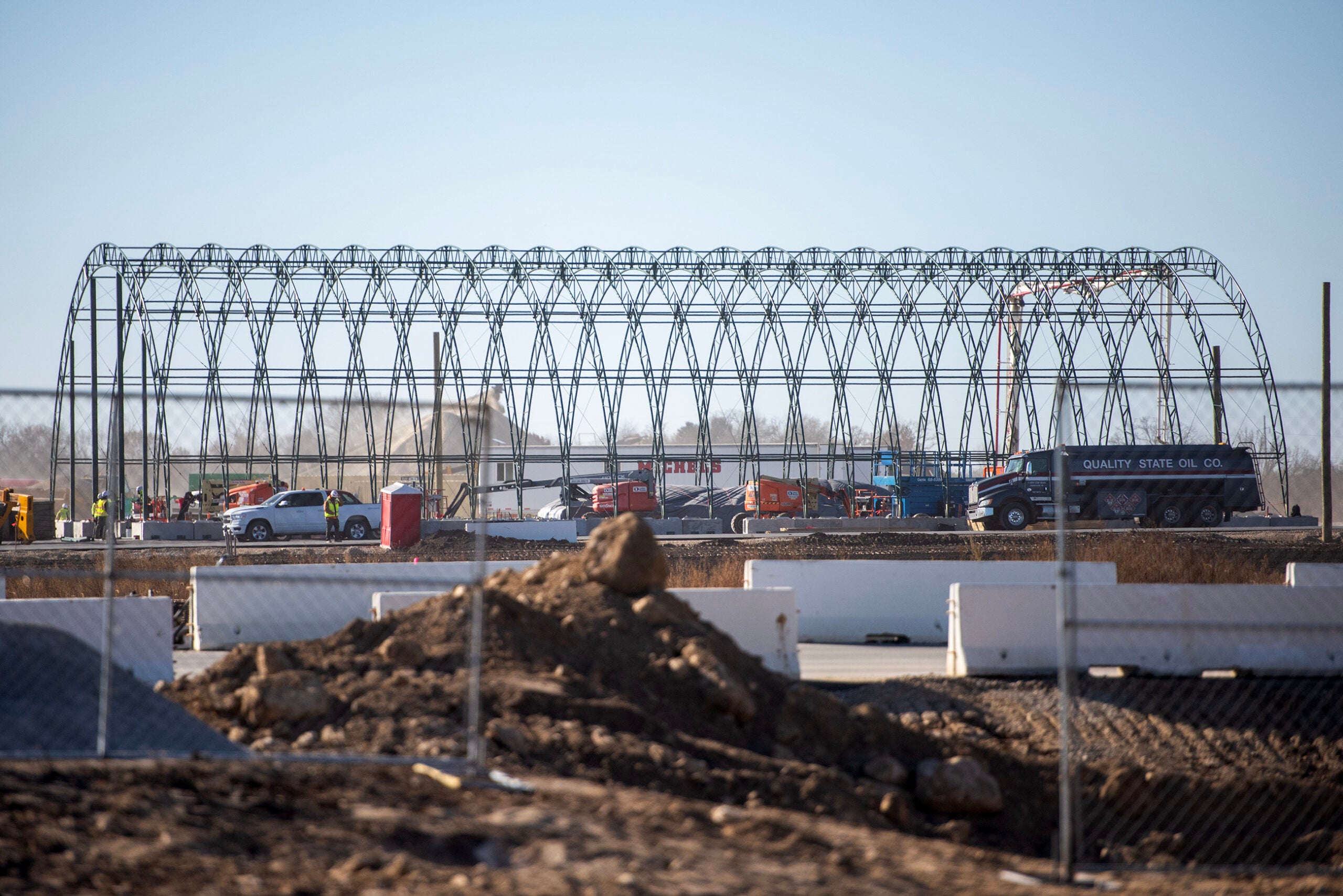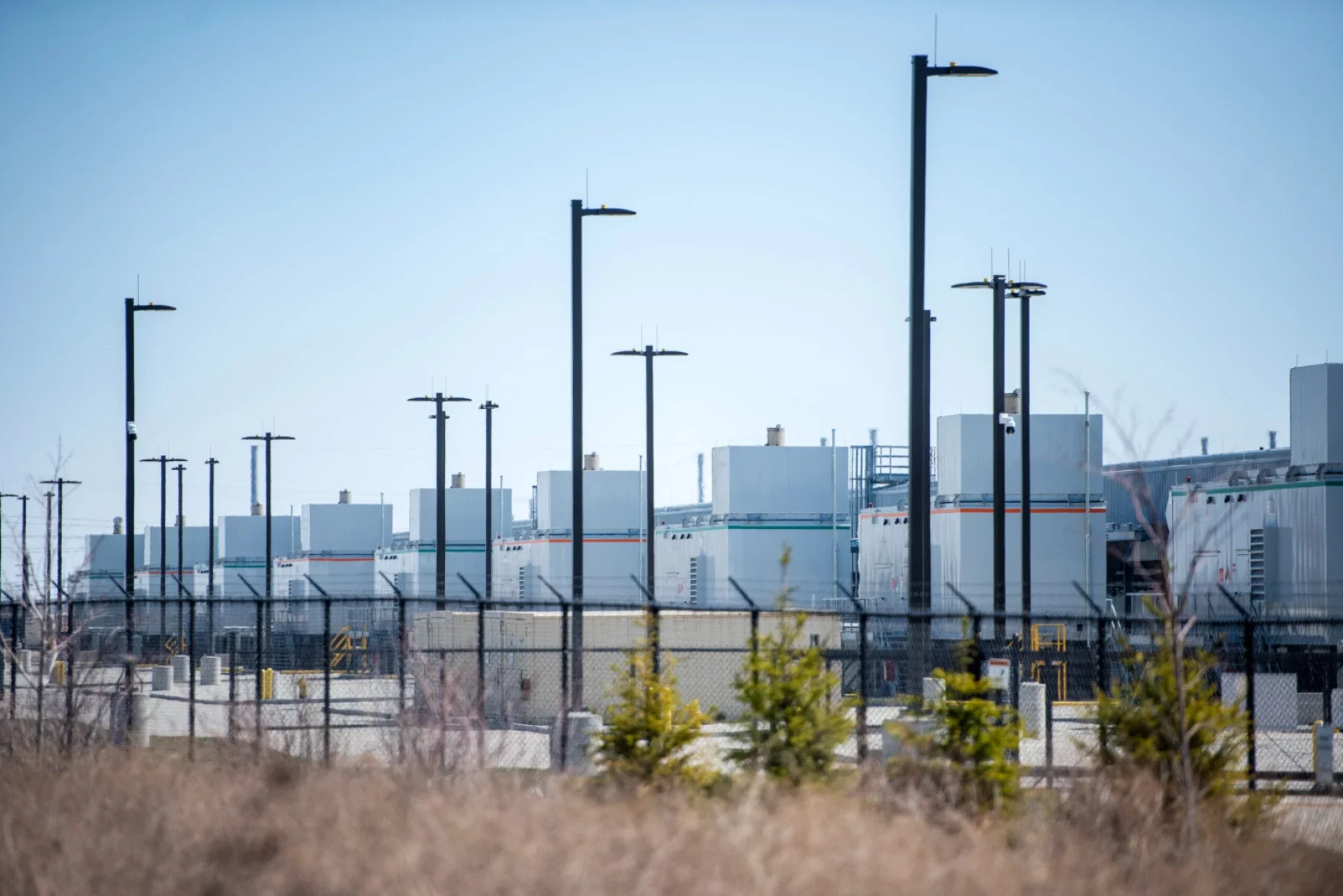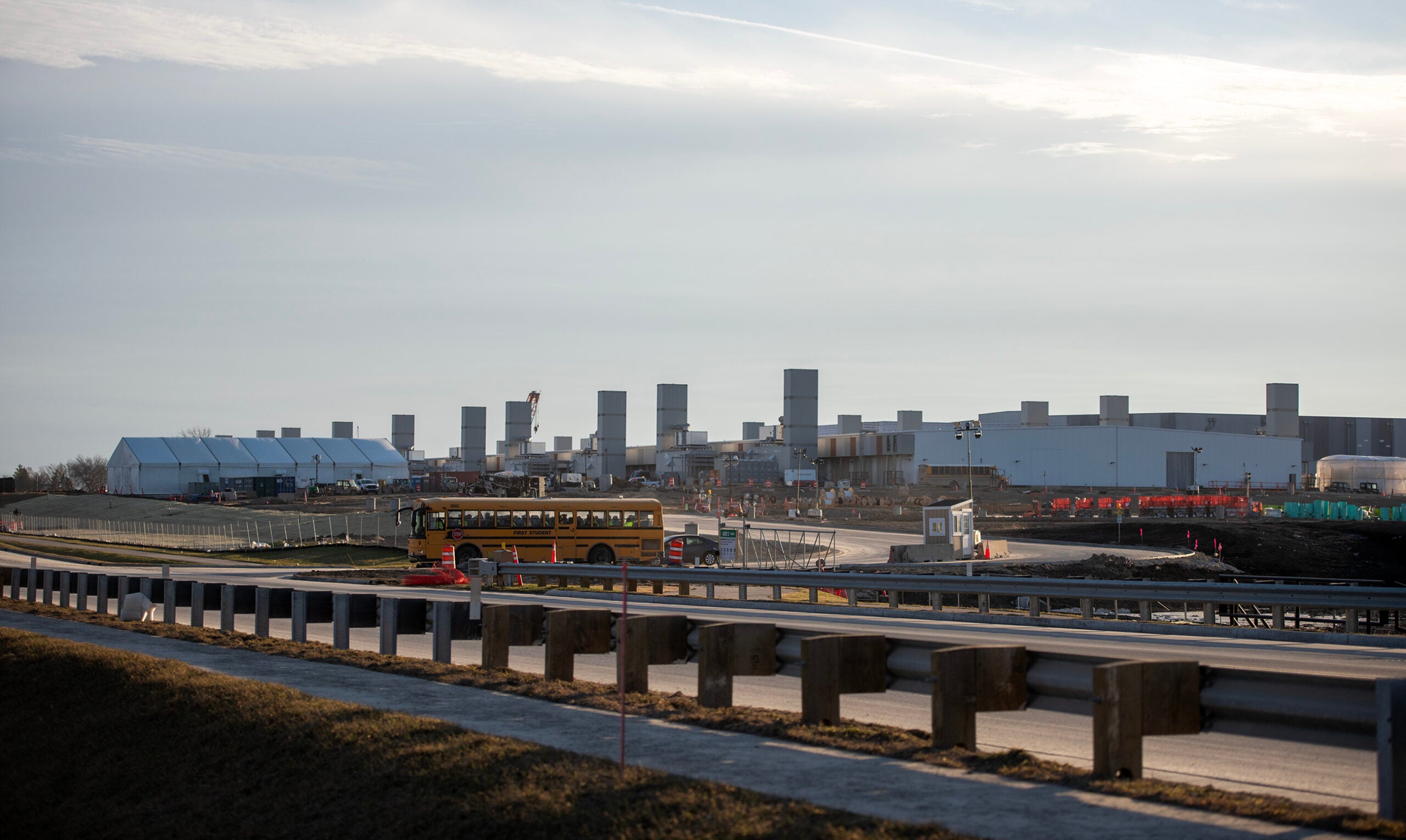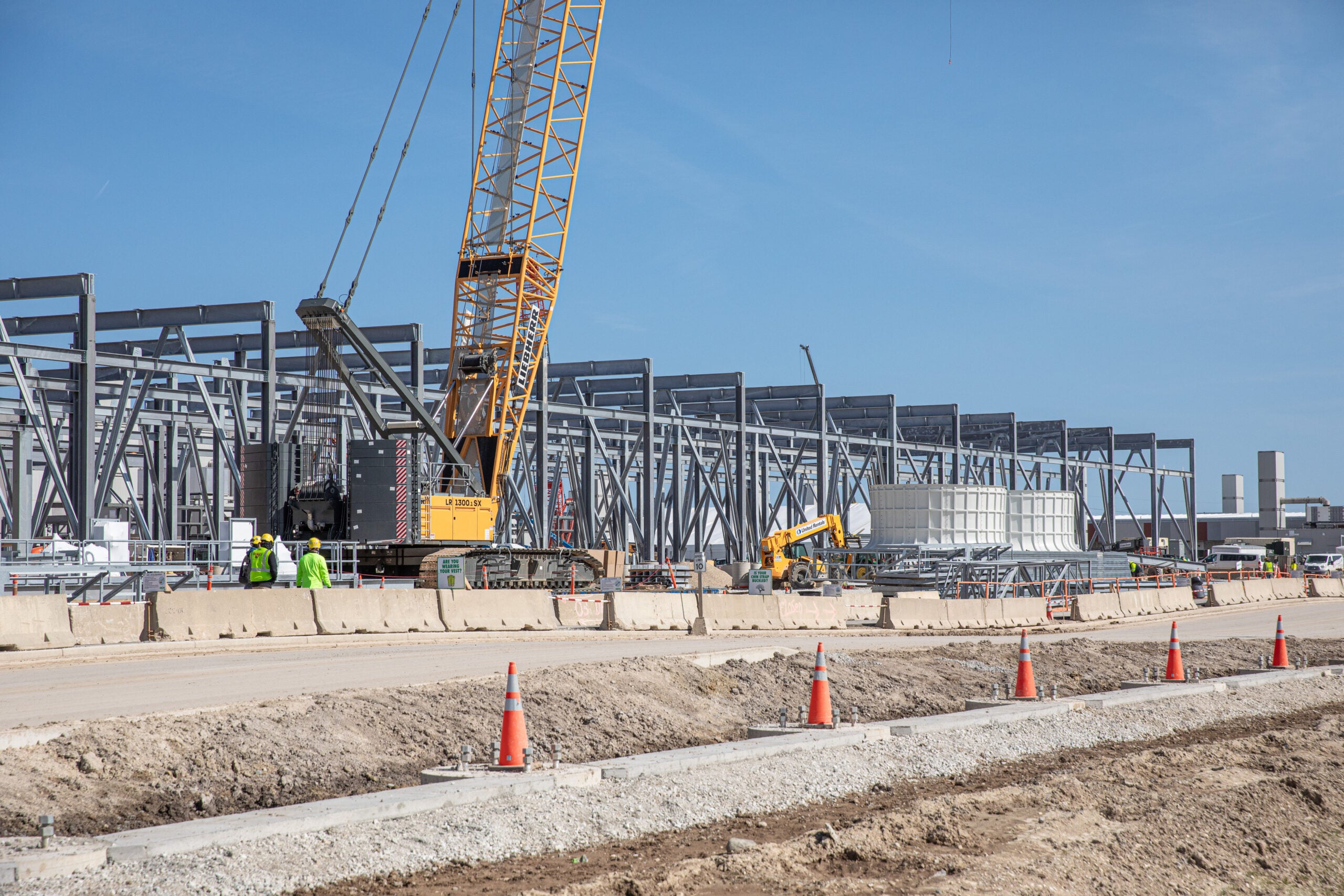State environmental groups are calling on Microsoft to power its Mount Pleasant data center campus with renewable energy, as advocates say data center expansion nationally has slowed progress in the clean energy transition.
Last week, more than a dozen advocacy groups signed onto an “open letter” to the tech giant, warning the multi-billion-dollar project could “push Wisconsin backwards in the fight for clean energy and safe, healthy air.”
And more data centers — which use 10 to 50 times the energy per floor space of a typical commercial office building — could be coming to Wisconsin in the coming years, raising concerns it could lead to more fossil fuel infrastructure to meet increased demand.
News with a little more humanity
WPR’s “Wisconsin Today” newsletter keeps you connected to the state you love without feeling overwhelmed. No paywall. No agenda. No corporate filter.
Microsoft’s plans in Mount Pleasant, as well as other industrial development in southeast Wisconsin, are driving projected increases in demand for power. That demand is one of the things driving We Energies’ plan to build $2 billion worth of natural gas infrastructure in the coming years.
“It’s a massive buildout that will push our state’s climate goals out of reach, locking us into 30 more years of fossil fuels at a time when we all know we must rapidly transition to clean energy,” environmental groups wrote of the utility’s plan in their letter to Microsoft.
Bryan Rogers is the environmental justice director with Walnut Way Conservation Corp. His organization signed onto the letter because it had concerns around both Microsoft’s project and the natural gas infrastructure We Energies is proposing.
“The monopoly utility, We Energies, has used this very lucrative business opportunity for them as a means to double down on their addiction to fossil fuels, which is really not an addiction to fossil fuels so much as it’s an addiction to profit,” Rogers said.
We Energies spokesperson Brendan Conway said via email the company’s planned natural gas facilities are important to ensure reliability during the clean energy transition. He says the company plans to spend more than $7 billion on new renewable energy by 2028.
Microsoft expected to be ‘largest electric load served’ by We Energies
In a testimony to the state Public Service Commission, Robert Stephens, who testified on behalf of Microsoft, said the data center campus is expected to “become the largest electric load served” by We Energies.
During an earnings call this summer, Scott Lauber, president and CEO of We Energies’ parent company, said the utility only had enough energy and capacity to meet the needs of the “first 315 acres” Microsoft purchased in Mount Pleasant. Microsoft now owns roughly 1,620 acres.
“We are currently in the process of working with Microsoft and developing our plans for our next five-year (capital) plan that we’ll roll out this fall,” Lauber told investors.
Part of Microsoft’s plan to power data centers includes purchasing power from the Three Mile Island nuclear plant in Pennsylvania, which will restart in 2028 after being the site of the worst nuclear accident in U.S. history in 1979.
Stephens told the PSC the tech giant will purchase enough renewable energy to “match 100 percent of the carbon-emitting electricity consumed” by its data centers and other campuses by 2025.

Sierra Club pushes corporations to take bigger role in energy transition
The call for Microsoft to power its Wisconsin project with clean energy comes as a new Sierra Club report said delays in coal retirements and the build out of new gas plants “pose a serious threat” to reducing carbon emissions to avoid a “climate catastrophe.”
The report calls on large utility customers, like Microsoft, to move beyond emissions-matching purchases to take a more active role in the clean energy transition.
“We need corporations with climate goals who are also large users of electricity to be our partners in demanding better of utilities by becoming vocal advocates for around-the-clock clean energy solutions,” said Laurie Williams, director of the Beyond Coal campaign for the Sierra Club and report co-author, on a call with reporters.
Clean Wisconsin spokesperson Amy Barrilleaux said Microsoft’s plans to purchase clean power to offset emissions doesn’t do enough to support Wisconsin’s energy goals because Microsoft could purchase from providers in other states.
“Purchasing clean energy in California or somewhere else may help Microsoft meet its emissions goals, but it doesn’t do anything to help people in Wisconsin when We Energies is building billions of dollars worth of gas plants and pipelines,” she said.
A Microsoft spokesperson said via email that the company looks forward to working with community leaders and stakeholders to meet its sustainability targets as it expands cloud and AI infrastructure in Wisconsin.
“We welcome the opportunity for dialogue on what we appreciate is a critical local need,” the spokesperson said.
Barrilleaux said the environmental groups had received a response from Microsoft regarding their letter, but they “haven’t heard anything substantial.”
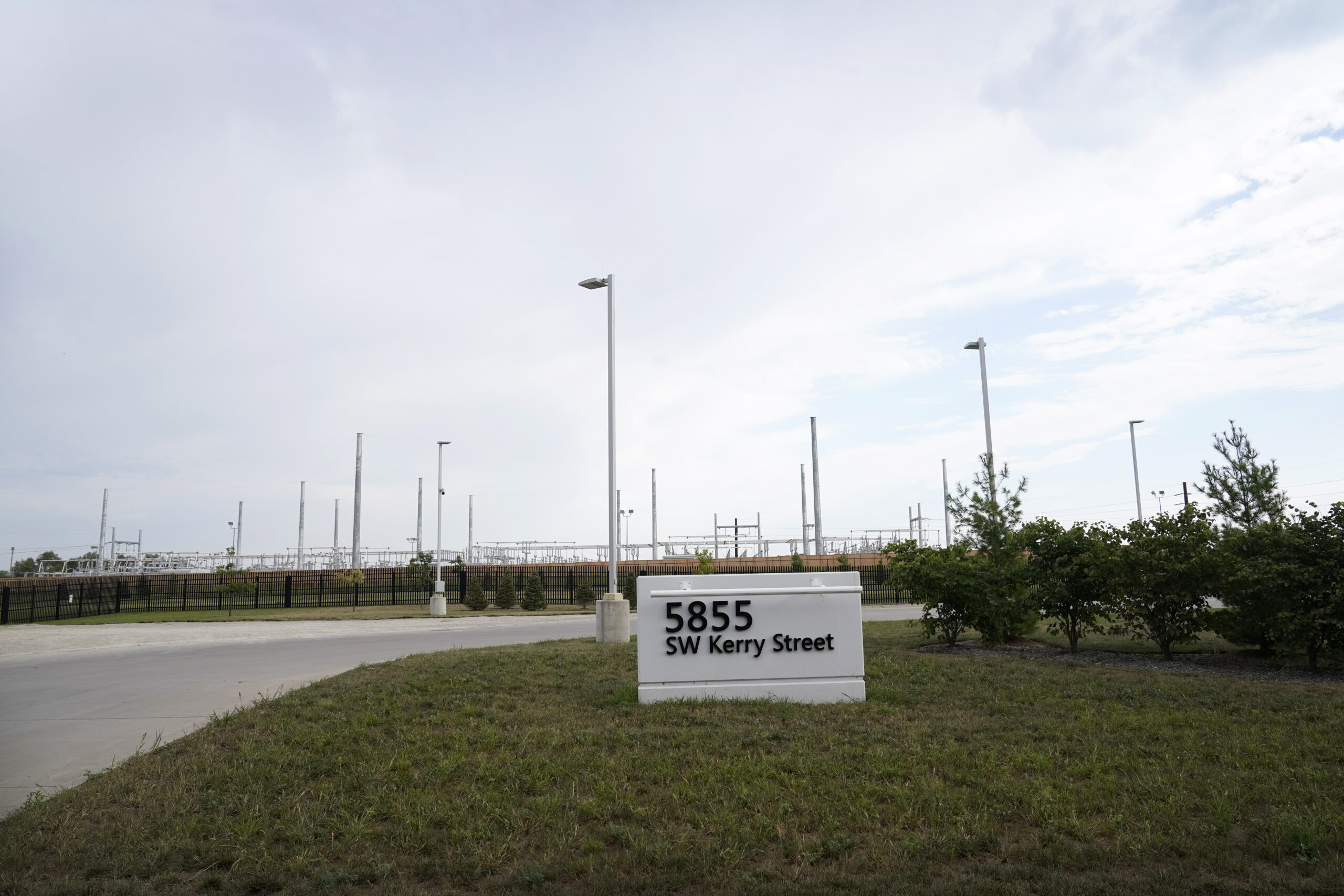
Regulators ask utilities for updated data, Alliant fields inquiries about data centers in service area
After a draft report from the PSC projected the state’s major utilities were on pace to meet their carbon reduction targets this summer, regulators requested more information from utilities regarding their demand and supply forecasts.
That’s because the projections from utilities anticipated flat demand growth between 2025 and 2030, potentially not accounting for load growth from data centers and transportation electrification, according to the transcript of a PSC hearing on the report.
The updated data from utilities could change whether they’re on pace to meet their climate goals when the final report comes out this fall.
“That exposes some problems with how utilities in Wisconsin plan and how they’re regulated,” Barrilleaux said. “If they’re going to give their regulator a plan that says demand is flat — when we’re all sitting here, and we can see that this data center is coming and demand is not going to be flat — then that’s an issue.”
And We Energies may not be the only utility seeing increased demand from data centers in the coming years. In an earnings call this summer, Alliant Energy President and CEO Lisa Barton said the company had “executed multiple agreements with data centers” in both Iowa and Wisconsin.
“These are all confidential, and once we feel that we have certainty with respect to the amount of the load and the timing of the load, we’ll announce those projects,” Barton said, adding more information would be shared at the company’s third-quarter earnings call.
Alliant spokesperson Melissa McCarville said via email the utility doesn’t have any specific projects to announce, but it has fielded “numerous inquiries” about “siting a data center” in Wisconsin.
Barrilleaux said utilities are trying to lure data centers to the state so they can profit off infrastructure needed to serve them.
“We Energies and Alliant Energy, in particular, their focus appears to be, ‘How can we use as much energy as possible (by) bringing the data centers here so that we can build expensive new infrastructure and make a difference on our bottom line?’” she said.
Wisconsin Public Radio, © Copyright 2025, Board of Regents of the University of Wisconsin System and Wisconsin Educational Communications Board.

